Imagine a music festival without any of the worst parts of a music festival. Intimate, creatively designed stages covered by ample shade. Musicians who play twice during the weekend to alleviate potential schedule conflicts. Affordable food and beverages crafted by local purveyors. No garbage strewn about. Manageable crowds. Free water.
Pickathon, set on Pendarvis Farm just outside Portland, Oregon, offers all of the above, and more. The festival is now entering its 25th year and remains largely independent from corporate overlords, something that isn’t lost on founder Zale Schoenborn.
More from Spin:
- ‘The City Raised Me’: DeathbyRomy’s Love-Hate Relationship with Hollywood
- CULT OF PERSONALITY
- Now Hear This: July 2025
“We’re really one of the only independent festivals left of note on the national scale,” Schoenborn said, as he sat in the conference room of Pickathon’s Portland office.
Photos from past festivals flickered on a nearby television screen showing happy crowds and musicians vibing in the festival’s pastoral setting. However, remaining independent is difficult, especially in a sea of summer festivals that offer bigger-name acts.
“The biggest challenge is our format, our mission as a festival, because there’s only one real mission that makes any money, and that is the Coachella or Bonnaroo [model] with a big stage,” Schoenborn said. “It’s not about community. How do you do that without having to fall back onto the shitty, kind of soulless corporate model?”
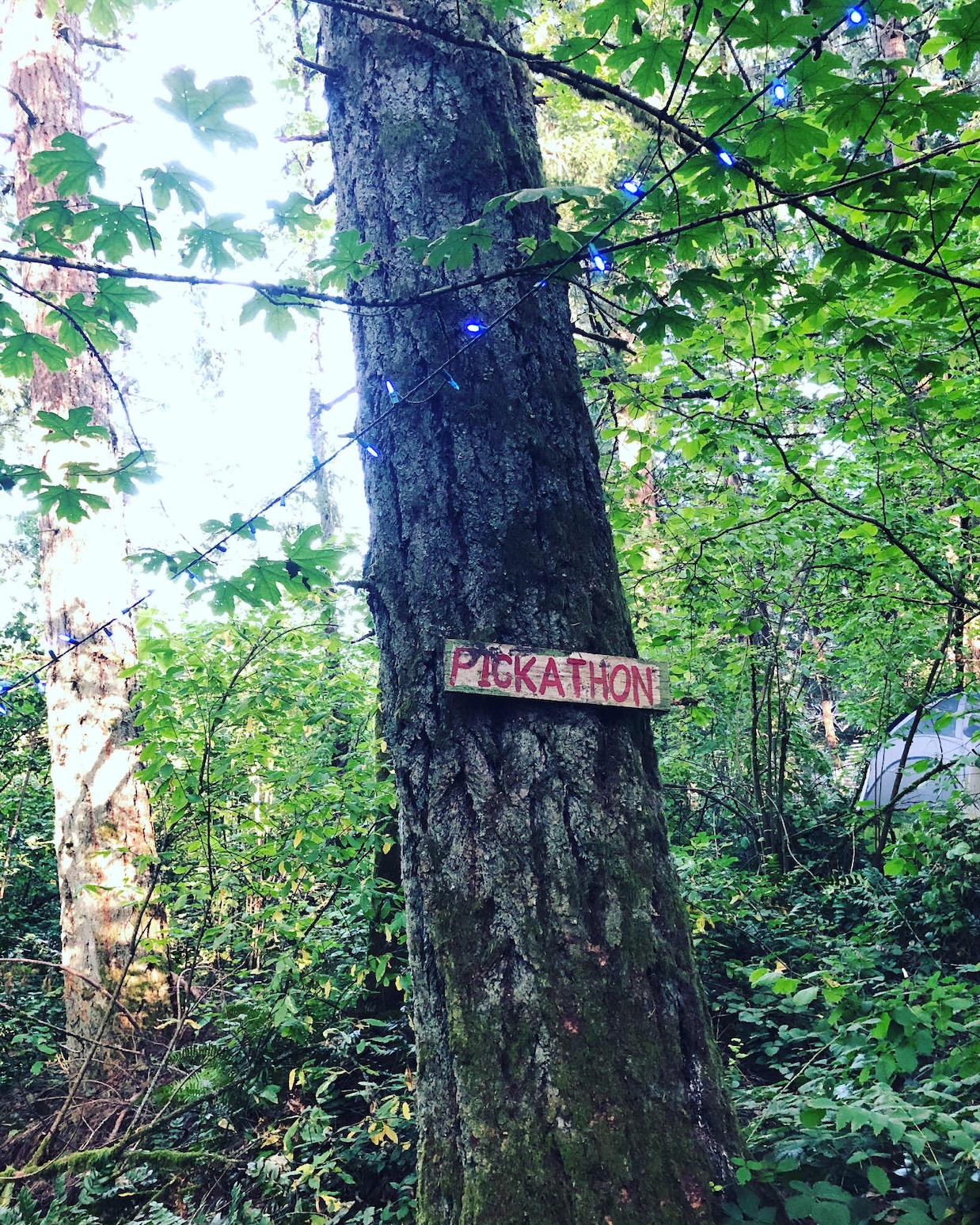
Set on 80 acres in Happy Valley, Oregon, Pickathon is all about discovery. Look at this year’s lineup. You will likely recognize a few names such as Portugal. The Man and Taj Mahal. But Pickathon specializes in artists that are just about to blow up and can kill it live. If you scroll through past Pickathon lineups you will see names such as Billy Strings, Sturgill Simpson, Khruangbin, Leon Bridges, and Kamasi Washington. Courtney Barnett and Future Islands both played sets in the festival’s tiny Galaxy Barn before getting huge.
“It’s going to be the best fucking festival experience of your life, and it won’t even be close,” Schoenborn said. “You won’t get it unless you come. You’re gonna see your favorite new bands.”
Artists who have played Pickathon frequently come back. Will Oldham, who records under the moniker Bonnie “Prince” Billy, first played Pickathon in 2010 and returned last summer despite typically avoiding most fests.
“A problem with some of the bigger festivals is that they spend much more time and thought on building brand than on making the experience actually awesome for both audience and performers,” Oldham said. “They want to humanize the inhuman, like Chili’s presenting an atmosphere of homespun welcome when nothing could be further from the truth.”
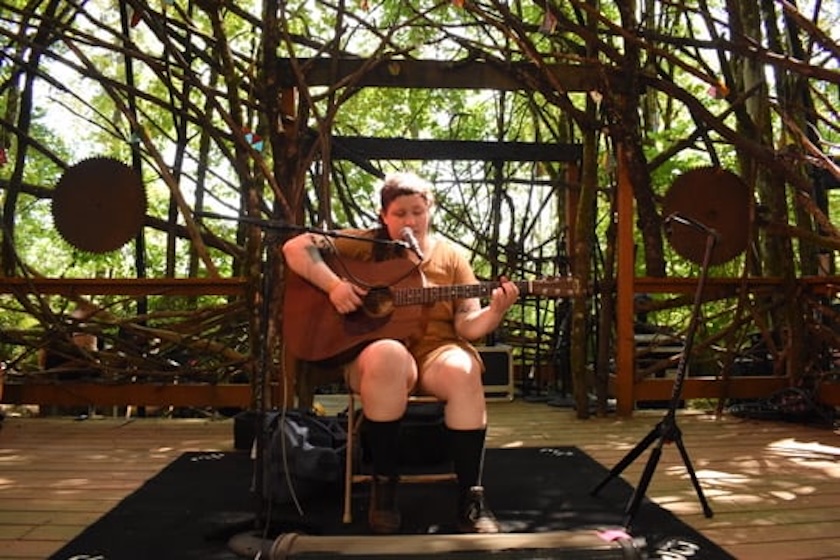
The people behind Pickathon are more interested in building community than making a profit. The festival is capped at 12,000 people. Compare that to the 125,000 people who attend Coachella each day. Also, you don’t have to leave the festival grounds should you choose to camp there as there are more than 3,500 sites available in the woods just a quick walk away from the stages.
“I don’t know if I can really hate on it, because this is America,” Schoenborn said when comparing Pickathon to bigger festivals. “You gotta cost-optimize and maximize profit, right? This is the one [format] that makes money. That’s why you see it everywhere. That’s why every festival feels the same. It’s just like a rinse and repeat. Every stage looks exactly the same. There’s chain link everywhere. There’s shitty food, and it costs a lot of money.”
To remain “trash-free,” the vendors at Pickathon do not sell food on paper plates and beverages in plastic cups. Instead, festivalgoers purchase a metal cup, which Oldham calls “genius,” that they can then fill with free water or bring to the various bars on-site to purchase craft beer or cider.
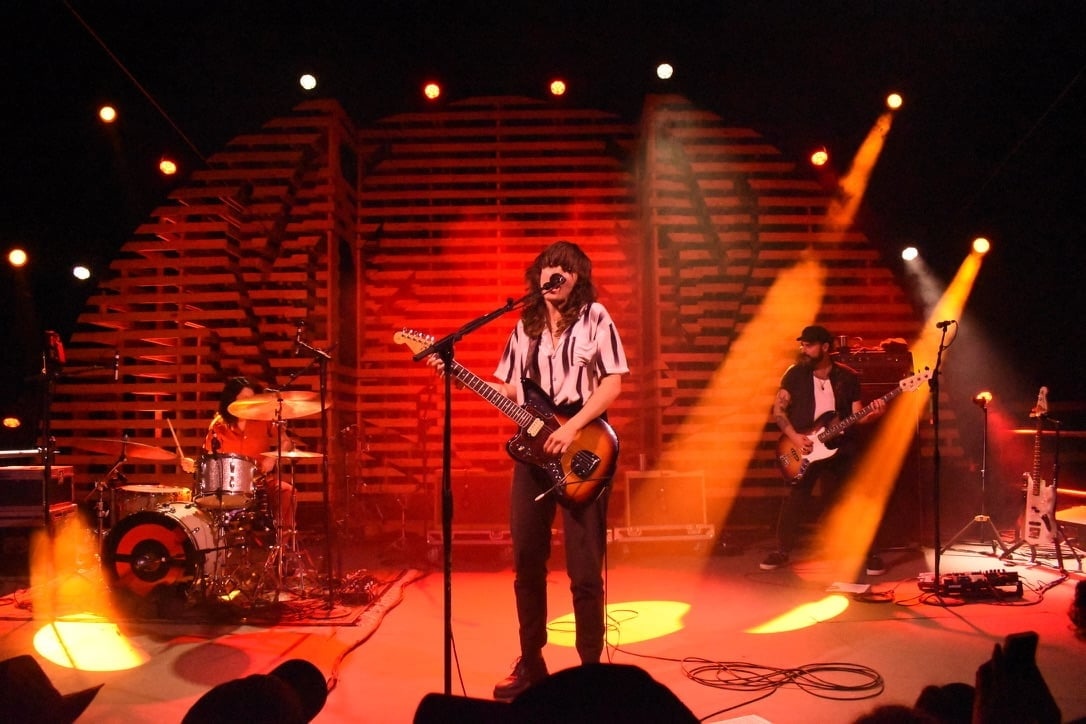
Pickathon also sells reusable plates made from bamboo that can be turned in for a token after use. When festivalgoers are ready for a next meal, they bring the token to vendors for their serving. It’s not uncommon to see people in Portland using these plates for picnics or even dinners at home long after the festival closes for the year.
All of this comes at a premium, however, as weekend wristbands currently cost $465. However, patrons can also buy single day tickets for less or even volunteer by doing work at the festival for free entry.
“We give away half our tickets right now free,” Schoenborn said. “It’s because the community is the centerpiece of building this nature metropolis. That is so dumb if you want to make money, but it’s so wonderful if you want to change a shit ton of people’s lives.”
This sense of community is what drives artists to fall in love with the festival. Cory Hanson, who has played Pickathon as part of Wand in the past, is returning in support of his new solo album, I Love People, this summer.
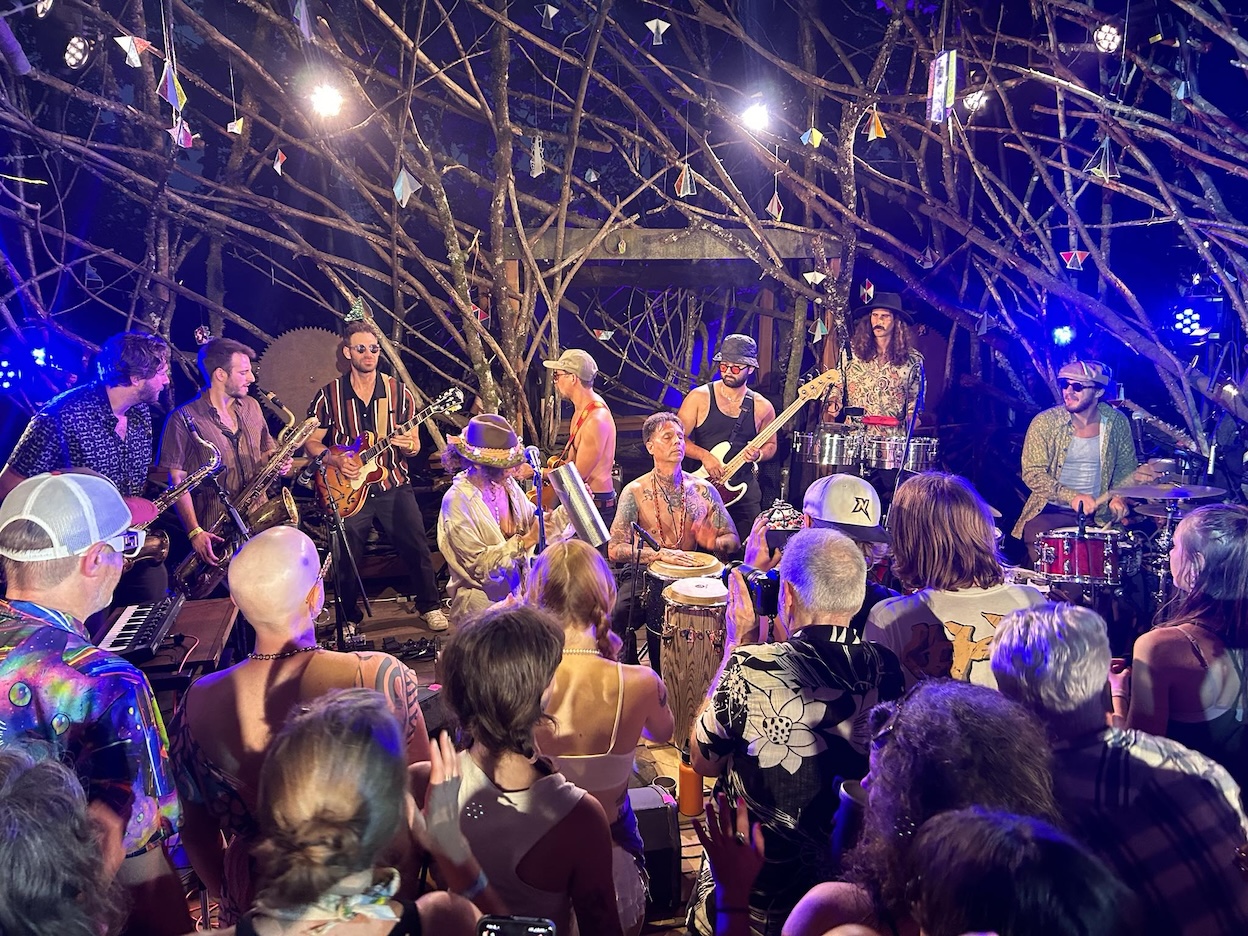
“The programming is eclectic and unique,” he said. “You can tell the artists were selected for ‘discovery,’ not ‘let’s get the 10 biggest streaming artists this year.’ It really is a great place to see music you haven’t heard of before, camp out, and chill in a beautiful place.”
Hanson, who will be closing out the Galaxy Barn with a late-night Saturday set and then playing again Sunday afternoon, also pointed to how those behind Pickathon refuse to sacrifice experience to make an easy buck.
“Music is such a joyful part of living, and to commodify it to death, make people pay $8 for a bottle of water, $20 dollars for food, just try to suck as much money out of fans as they swelter in a dustbowl wasteland parking lot, that is just a miserably unsexy corporate environment,” he said.
Country music artist Ellis Bullard played Pickathon last year and loved it so much that he is returning to play again this summer.
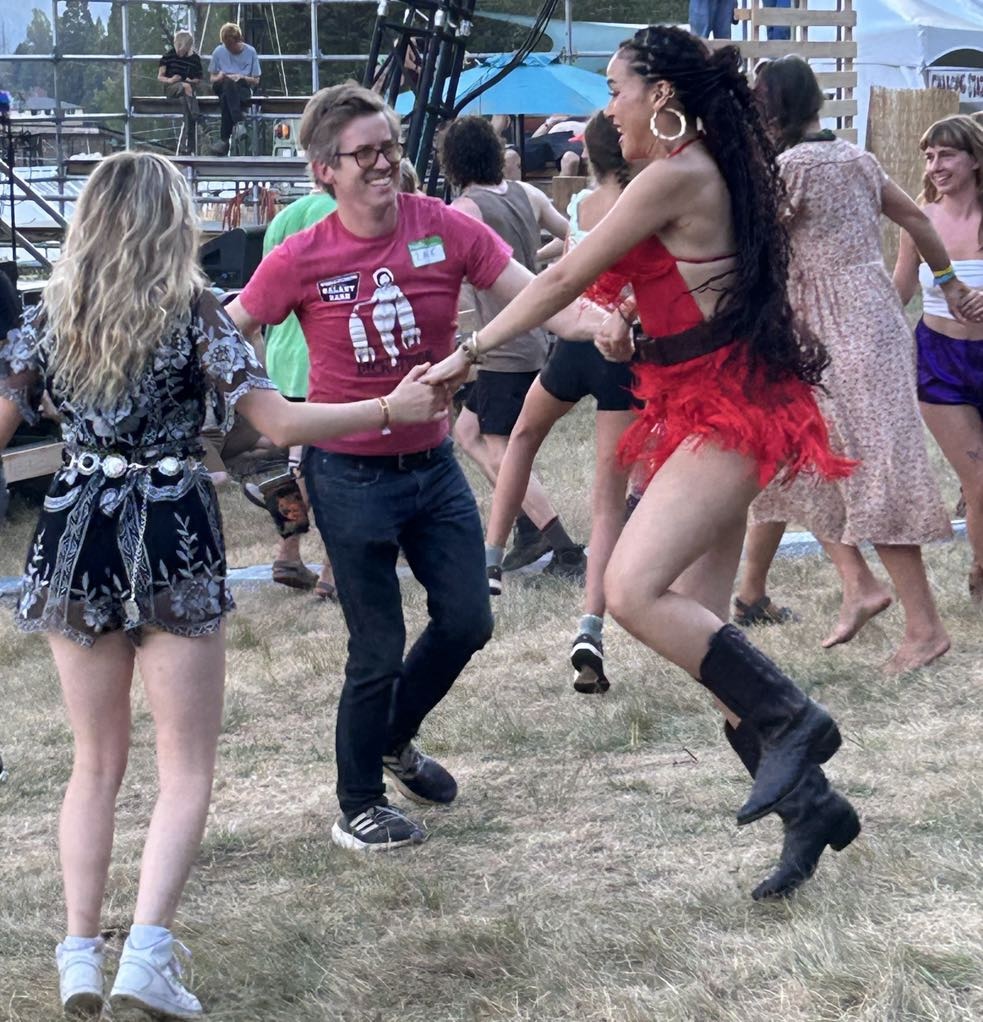
“Pickathon is different from the typical summer fest because they do grunt work to bring the best of the indie music scene across all genres to curate a unique experience similar to SXSW but with none of the corporate BS,” Bullard said. He will be playing sets on Thursday and Friday.
But every Pickathon feels like the final Pickathon. In 2024, the festival renewed its permit with the city of Happy Valley for 10 more years, but even that hurdle hasn’t prevented Schoenborn from losing sleep.
“We’re in impending doom at all times,” he said. “We still haven’t closed the gap between income and expenses.”
Last year, the festival launched its non-profit Creative Neighborhoods initiative which teams skilled architects and tradespeople with aspiring young people to craft the stages and the areas around them as a mentoring program. This year ZGF, the architects behind Portland’s award-winning airport, is designing the festival’s main stage, known as the Paddock Neighborhood.
“We’ve gotten a lot further by this neighborhood model,” Schoenborn said. “We’re getting free materials, free builders, free everything.”
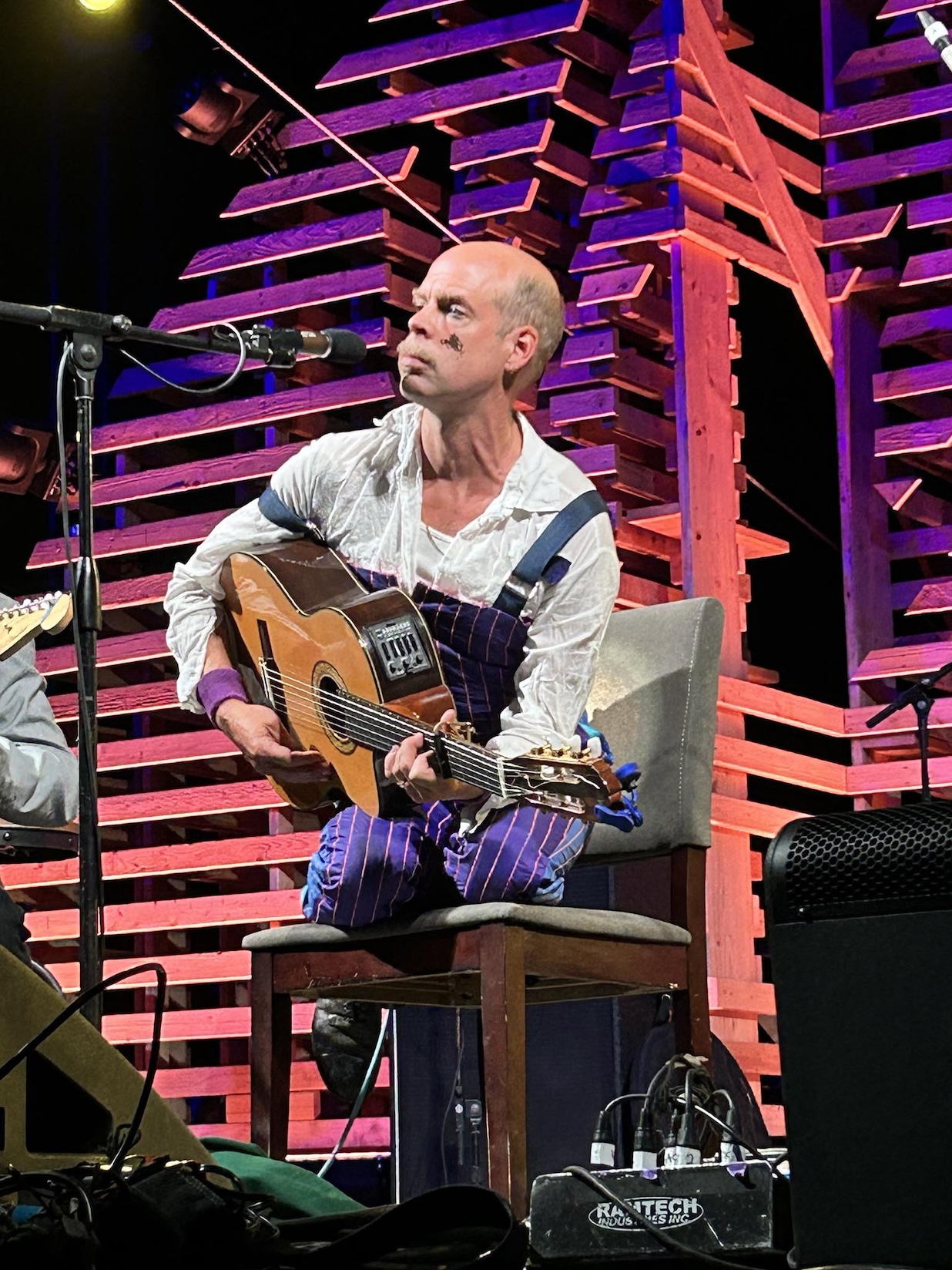
Once the festival is over, the materials are then recycled and donated to organizations like Portland Public Schools and AfroVillage, which assists people of color experiencing housing insecurity.
“There’re so many better ways to make money than go soulless,” Schoenborn said. “The interconnected community of the artists and the builders and Portland. It never gets boring. Never gets old.”
This creative spirit hooks festivalgoers. It’s not uncommon to see the same people at the festival each year, friendships forged in the past continuing with every Pickathon. It also draws artists of Oldham’s caliber back.
“My brain tends to threaten explosion when confronted by excessive stimulation, which keeps me away from most festivals,” Oldham said. “But the Pickathon people make decisions of all sorts that demonstrate a respect for humanity that is absent in the makeup of most festivals. Hopefully they’ll invite me back.”
To see our running list of the top 100 greatest rock stars of all time, click here.



